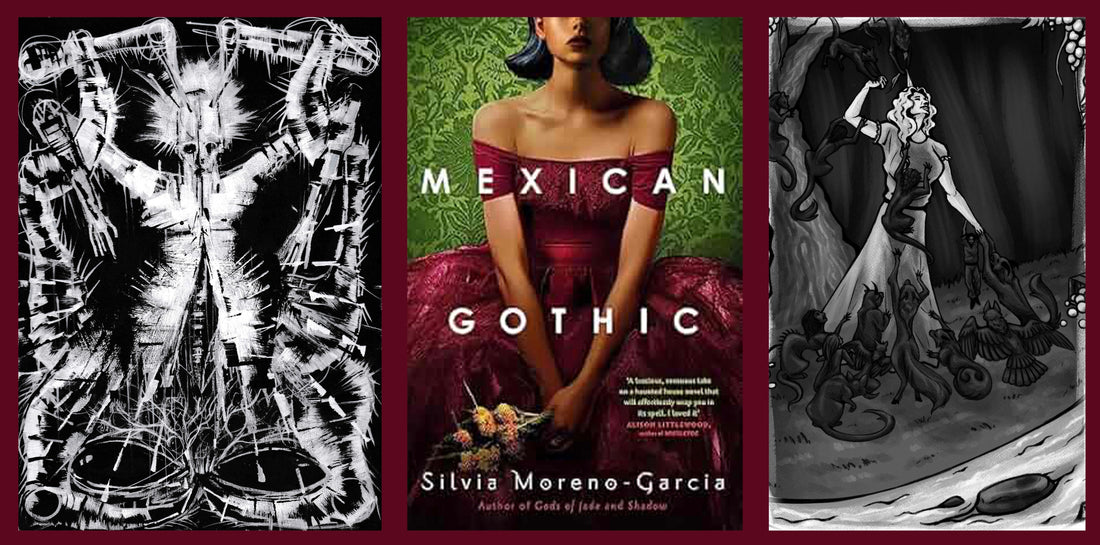
Dark Pleasures: Why We Love Haunting and Twisted Tales
Share
Cybirdy has always been drawn to the shadows. Not to the outright horror of slasher films or gratuitous gore, but to the quiet, creeping dread of a story that dares to whisper truths we often shy away from. Maybe you feel it too. That strange craving for a book that leaves you haunted, shaken, and just a little more aware of the darker corners of the mind. It’s a curious thing, isn’t it? This hunger for the unsettling.
Over the years, Cybirdy has come to realise that these haunting tales don’t simply disturb us—they speak to something essential. Let me take you through why these narratives matter and why, Cybirdy believes, they are among the most popular books we turn to in times of change, crisis, and inner search.
The Thrill of Fear Without the Danger
There’s something primal about fear. It sharpens our senses, jolts us awake, makes our hearts beat a little faster. But unlike real-world threats, fear in fiction is safe. When you read something like The Rioting of Inferno by E.J Cousins or the darkness in Dysael, the city of The Beautiful Harpies by Cameron Scott Kirk, you're not in danger, but your brain doesn’t quite know that.
We seek these dark pleasures for the same reason we ride roller coasters or watch thunderstorms roll in: we want to feel something. We want that pulse of adrenaline without the consequences. And haunting fiction delivers just that. It’s an emotional exercise, a controlled plunge into fear, grief, loss, or even madness. You close the book and you’re still whole—but not unchanged.
A Safe Space to Explore the Unthinkable
What do we do with pain, with grief, with the parts of life we don’t have tidy answers for? Often, we hide them. But dark fiction invites us to confront them head-on. Books like Letters to You, to Her, to No One by Vasilena Spasova or Silent Riders of the Sea by John Gerard Fagan immerse us in lives marked by absence, trauma, and the raw edges of human emotion.
You may not have grown up in an orphanage like the girl in Letters to You, or faced the icy grief of a lost child like Jack in Silent Riders, but as a reader, you walk beside them. You feel with them. These stories don’t just acknowledge sorrow—they honour it.
The Legacy of the Shadowed Story
This isn't a new phenomenon. We’ve always loved unsettling stories. From the gothic imagination of Mary Shelley’s Frankenstein to the poetic fever dream of Goblin Market by Chritina Rossetti, literature has long been a place to explore the forbidden, the monstrous, the morally grey.
Even Alexandre Dumas, known for his swashbuckling adventures, gifted us the strange and whimsical and charming The Porridge of the Countess Berthe – a goblin tale cloaked in folklore and deeper meaning. Through our curation, readers gain access to stories that echo the past but speak to our present.
Morally Grey is the New Black
Let’s be honest—perfect heroes bore us. The real fascination lies in the in-between: the flawed protector, the compromised priestess, the gentle villain. In The Beautiful Harpies’ dark post-apocalyptic city, Dysael, who is truly in the right? What does it mean to protect a city, what does revenge mean, and at what cost?
We read these stories because they reflect our own complexity. You and I, we live in a world that rarely offers clean choices. So when fiction reflects that messiness, it feels real. It makes us feel alive and connected.
Popular Books That Reveal Our Collective Fears
Look at any bestseller list and you’ll see it: dark fiction book sells. From The Silent Patient by Alex Michaelides to Mexican Gothic by Moreno Garcia, we are fascinated by what lies beneath. It’s no surprise that in the aftermath of global crises, readers are turning more and more toward fiction that reflects their unease.
Cybirdy has noticed it again and again—stories like A Second Revolution by Kelly Noll can resonate deeply. The surveillance, the disappearances, the feeling of living in a controlled state—these aren’t just fantasy. They’re recognisable. When we read, we want more than escapism, we are looking for resonance.
Finding the Beauty in the Bleak
But it’s not all grim. The most powerful haunting stories offer more than despair—they offer transformation. In 84-19 Rhapsodies, Alix Daniel, aka Docteur Cybirdy, weaves the pain of the pandemic era into a tapestry of resilience and critique. In Hippocrates of London, we don’t just see the struggle of a medical system; we witness the stubborn beauty of humanity within medicine. Goblin Market and its translation by Alix Daniel are both as beautiful and poetic as scary and gothic. The illustrations by Eva Spasova of our bilingual edition add to the beauty in the bleak.
You finish these books and feel... fuller, and even augmented. Not because they provided answers, but because they gave you language, poetry, and meaning for your own questions.
My Invitation to You
So why do we love dark stories? Because they don't lie. They don't flinch. They invite us to step closer to our shadow selves and ask, "What if this were me, what would this were she or he, or them?" They offer connection and sometimes compassion in the eerie, meaning in the morbid, and sometimes, even hope in the haunted.
This is what Cybirdy stands for, and that is what Cybirdy Publishing is creating. Not shock for its own sake, but stories that make you feel, think, and ultimately grow.
So go ahead. Pick up something that scares you. You might be surprised by the revelation.




